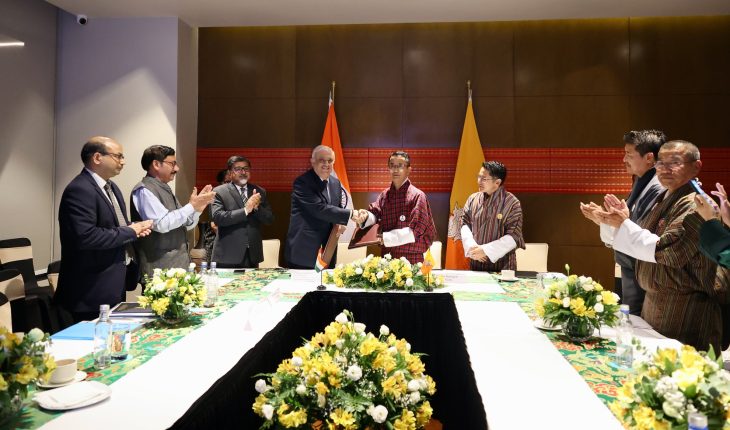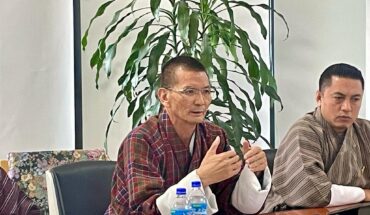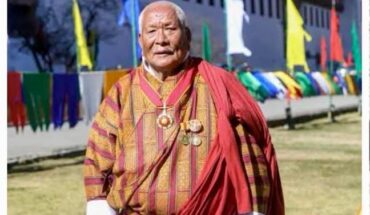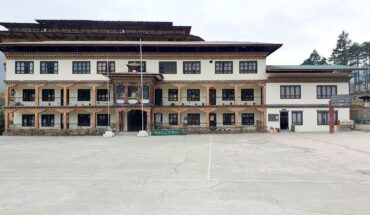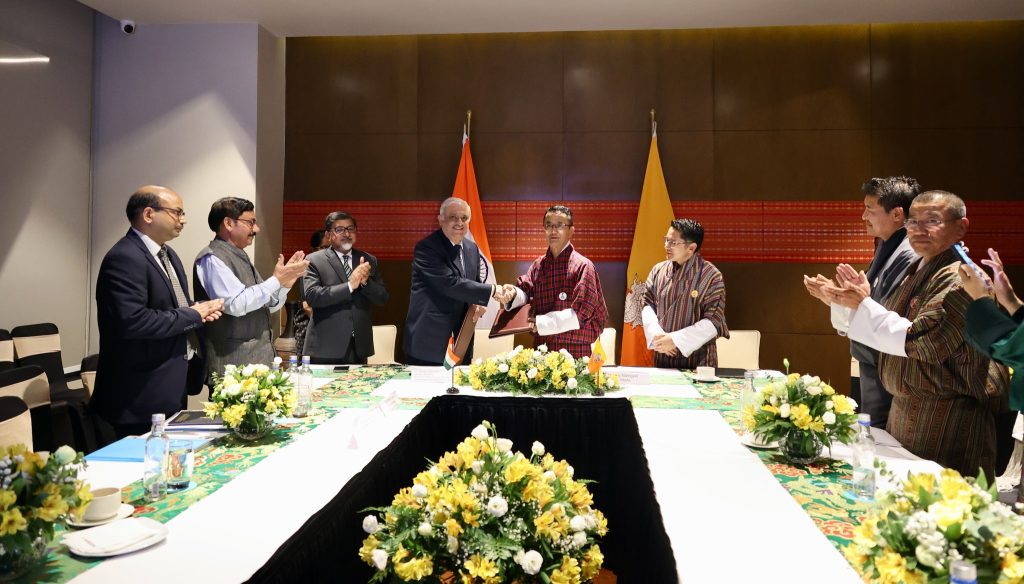
TIL BDR GHALLEY | Thimphu
Thimphu
Bhutan and India have signed a Memorandum of Understanding (MoU) on technical cooperation in agriculture, livestock, and allied sectors.
The agreement aims to enhance food security, promote sustainable farming, and strengthen rural livelihoods across both nations.
The MoU was signed in Thimphu on August 27 by Devesh Chaturvedi, Secretary of India’s Ministry of Agriculture and Farmers’ Welfare, and Thinley Namgyel, Secretary of Bhutan’s Ministry of Agriculture and Livestock (MoAL).
The signing was witnessed by Agriculture Minister, Lyonpo Younten Phuntsho, and India’s Ambassador Sudhakar Dalela.
The MoU provide a five-year renewable framework of collaboration in key areas, including agricultural research and innovation, livestock health and production, post-harvest management, value chain development, and the exchange of knowledge, skills, and expertise.
Officials from both governments emphasized that the agreement reflects both governments’ commitment to translating policy into action.
The framework is expected to benefit farmers directly by improving productivity, expanding market access, and strengthening resilience against emerging challenges such as climate change and food insecurity.
Following the signing, Bhutan and India convened the first session of the Joint Technical Working Group (JTWG).
Members endorsed the Terms of Reference (ToR) and identified priority areas of cooperation, including greenhouse farming, Jersey cattle breeds, farm mechanisation, and technology transfer.
The swift convening of the JTWG signaled the commitment of both nations to implement the agreement without delay.
Describing the agreement as a turning point, Agriculture and Livestock Minister Younten Phuntsho said the MoU reflects a shared vision for rural prosperity.
“The MoU is both opportune and momentous, marking a milestone in our shared journey of cooperation. It creates opportunities for collaboration in vital areas,” he said.
The minister added that as the governments move forward with this signing, translating the tenets of the MoU into action will go a long way in improving the lives of farmers in both nations.
Ambassador Dalela underlined India’s strong commitment to implementation, noting that the MoU goes beyond paperwork.
“The MoU is not just a document, but it is a charter to implement things on the ground. We are not only marking an important economic milestone by signing this MoU but also celebrating the enduring friendship between India and Bhutan,” he said.
The MoU is designed to enhance institutional collaboration while also empowering farmers and agricultural entrepreneurs.
Both governments highlighted that knowledge and skill exchanges between professionals and institutions will play a vital role in capacity building.
According to Sonam Pelgen, Senior Planning Officer from MoAL’s Policy and Planning Division, the agreement will also strengthen people-to-people ties.
“This MoU is expected to not only foster innovation and capacity-building but also deepen people-to-people connections and regional collaboration in the agriculture and livestock sectors,” she said.
Pelgen noted that the framework will enable Bhutan to access support in improved crop and livestock varieties, precision agriculture, and modern farming tools.
“Under the understanding, the country is expected to receive assistance in adopting superior seed and livestock breeds, improving protection and precision in agriculture, and modern farm mechanisation tools, among other priority needs,” she added.
Officials stressed that the agreement is rooted in the countries’ longstanding trade and agricultural ties.
“The MoU was developed based on the existing trade Bhutan has with India, and to expand the existing market helping the country meet food security, rural prosperity, and sustainable farming assistance,” she said.
The MoAL issued a statement thanking India’s Ministry of Agriculture and Farmers’ Welfare for its continued support.
The statement emphasized that the cooperation will empower farmers, create opportunities for rural entrepreneurs, and strengthen agricultural resilience.
During the JTWG meeting, Indian Agriculture Secretary Chaturvedi outlined India’s priorities in agricultural development, including the use of digital solutions, climate-resilient practices, risk mitigation, and enhanced access to credit for farmers.
Both sides agreed to continue discussions on agricultural marketing, food processing, the seed sector, research, and capacity building.
The two countries also agreed to hold the next JTWG meeting in India at a mutually convenient date, reaffirming their commitment to regular technical exchanges.
The MoU, valid for five years with an option for renewal, is expected to channel more assistance into farm mechanisation, post-harvest technologies, and value chain strengthening, while fostering greater sustainability in Bhutan’s agricultural sector.
As the MoU transitions from policy to projects, its impact is expected to be felt directly by farming communities across Bhutan.
Both governments expressed optimism that cooperation in areas such as technology transfer, organic farming, and farmer empowerment will strengthen rural livelihoods and ensure long-term food security.
For Bhutan, the collaboration promises tangible benefits for farmers and rural entrepreneurs, while for India, it provides an opportunity to share expertise and deepen ties with a close neighbour.
With the framework now in place and the JTWG actively engaged, officials said the MoU will guide future agricultural collaboration and contribute to building more resilient and prosperous rural economies in both countries.

